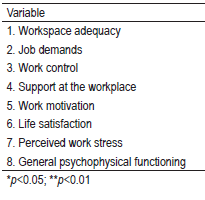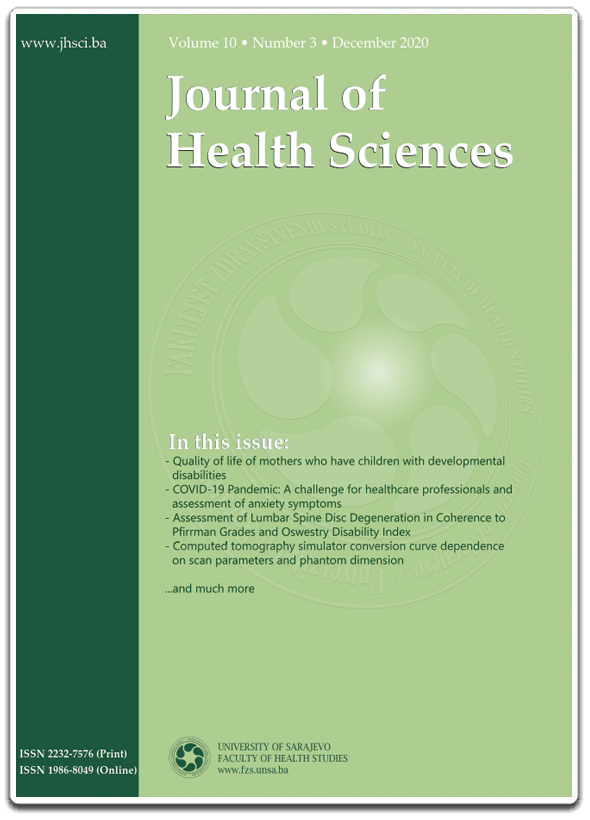Mental well-being of teachers working at home during the COVID-19 pandemic
DOI:
https://doi.org/10.17532/jhsci.2022.2261Keywords:
Pandemic, well-being, motivation, working from home, physical and psychosocial factorsAbstract
Introduction: Teachers in Bosnia and Herzegovina had insufficient skills in educational technology but had to lead the introduction of online teaching and adapt all aspects of the educational process to the online environment, which placed a great burden on them. The main objective of this research was to identify the challenges faced by teachers during the lockdown period. The sudden shift to online teaching, lack of preparation, and social isolation resulted in significant changes in job demands, perceived control, and social support in the workplace.
Methods: A correlational study was conducted with a sample of 345 employees in the education sector in Bosnia and Herzegovina. Descriptive analysis, multiple regression analysis, and t-tests were performed using SPSS version 20.0.
Results: The results indicate that teachers who did not have adequate workspace at home experienced greater workload but remained highly motivated. High job demands and low social support at work are associated with increased stress and decreased psychophysical functioning, while higher social support is associated with higher life satisfaction. In addition, higher job demands and stronger social support were related to greater intrinsic and extrinsic motivation at work.
Conclusion: Results show that teachers lacking proper home workspaces reported their work as notably more demanding and stress-inducing, with a reported decline in their overall psychophysical well-being. Moreover, they expressed a reduced sense of control over their work, diminished social support, and lower levels of life satisfaction. These findings provide a valuable foundation for developing recommendations to address crisis situations in education, particularly when teachers transition from physical classrooms to virtual spaces, which is also important for online teaching and learning in typical times.
Downloads

Downloads
Published
License
Copyright (c) 2023 Dženana Husremović, Hana Sarajlić

This work is licensed under a Creative Commons Attribution 4.0 International License.










